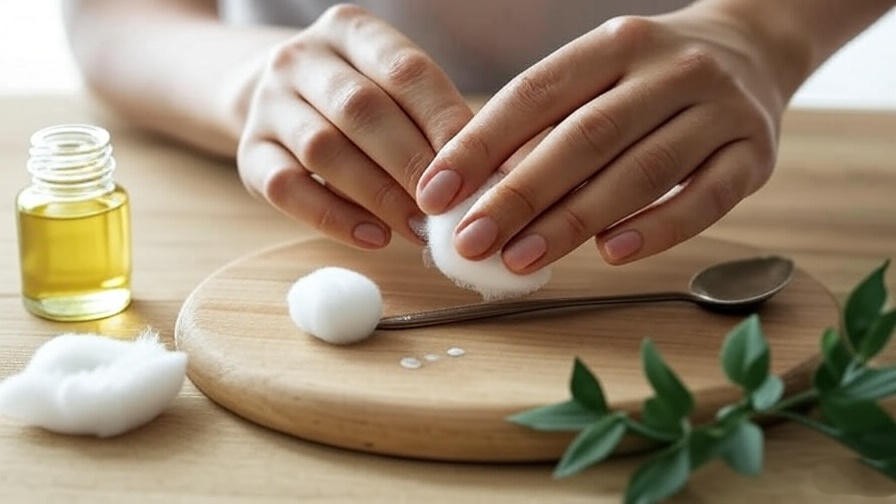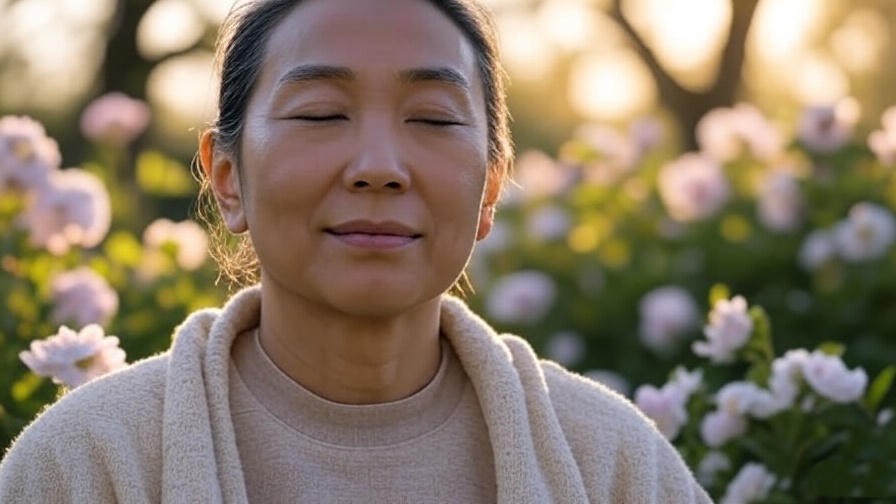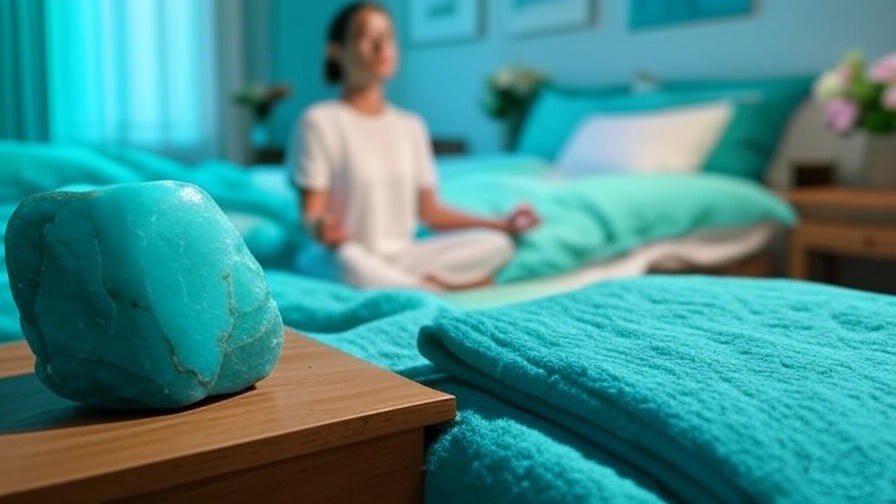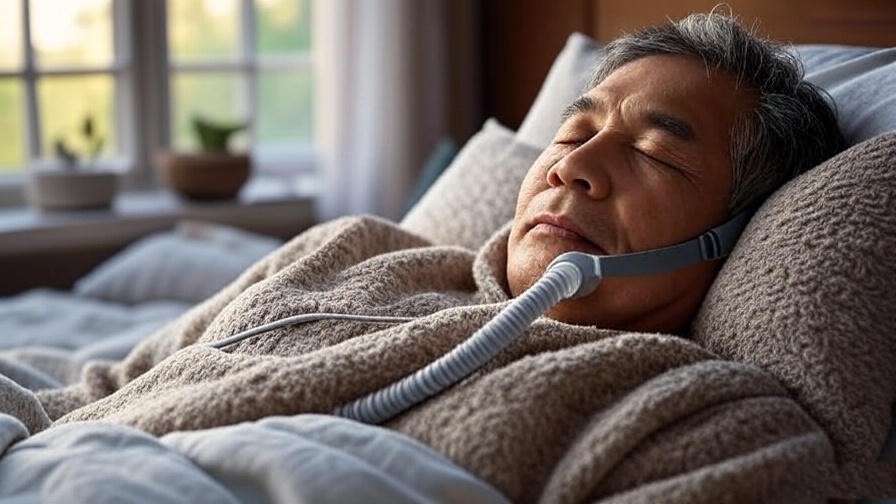Imagine lying in bed, desperate for sleep, but a throbbing toothache keeps you awake, each pulse a reminder of your discomfort. Extreme tooth pain can’t sleep is a reality for many, turning restful nights into exhausting battles. This relentless pain not only disrupts your sleep but also affects your mood, energy, and overall well-being. As experts in holistic health and sleep optimization, we understand how interconnected oral health and rest are to your quality of life. In this comprehensive guide, we’ll explore safe, natural remedies to ease tooth pain, practical strategies to restore restful sleep, and long-term holistic practices to prevent recurrence. Backed by science and holistic principles, these solutions will help you find relief tonight and support your journey to wellness.
Understanding Extreme Tooth Pain and Its Impact on Sleep
Why Tooth Pain Worsens at Night
Tooth pain often feels more intense at night due to physiological and environmental factors. When you lie down, blood flow to the head increases, amplifying pressure in the affected tooth. Without daytime distractions, your brain focuses more on the pain signals, making them seem unbearable. Additionally, circadian rhythms influence pain perception, with studies showing heightened sensitivity during nighttime hours. According to a 2019 study published by the National Institutes of Health, pain perception peaks at night due to changes in neural processing, disrupting the sleep cycle, particularly REM and deep sleep stages critical for recovery.
The Vicious Cycle of Pain and Sleep Deprivation
Extreme tooth pain and sleep loss create a vicious cycle. Lack of sleep increases stress hormones like cortisol, which heighten pain sensitivity, making it harder to rest. This cycle can lead to irritability, anxiety, and diminished mental clarity, all of which undermine holistic well-being. Research from the Journal of Pain (2021) indicates that even one night of poor sleep can lower pain thresholds by up to 15%. For those seeking natural solutions, breaking this cycle is essential to restoring balance and promoting restful nights.
Immediate Holistic Remedies for Tooth Pain Relief
Safe At-Home Pain Relief Techniques

When extreme tooth pain keeps you awake, immediate relief is a priority. Here are evidence-based, holistic remedies you can try safely at home:
- Clove Oil: Known for its natural analgesic and antibacterial properties, clove oil contains eugenol, which numbs pain and reduces inflammation. Dilute 1–2 drops with a teaspoon of carrier oil (like coconut oil) and apply to the affected area using a cotton ball. Avoid overuse, as it may irritate gums.
- Cold Compress: Applying a cold compress to the outside of your cheek for 15–20 minutes reduces swelling and numbs the area. Wrap ice in a cloth to prevent skin irritation and use intermittently to avoid tissue damage.
- Saltwater Rinse: A warm saltwater rinse (1 teaspoon of salt in 8 ounces of water) cleanses the mouth, reduces bacteria, and soothes inflamed gums. Swish gently for 30 seconds and spit out.
Tip: Always test clove oil on a small area first to ensure no allergic reaction. Consult a dentist if pain persists beyond 48 hours.
Calming the Mind to Manage Pain Perception
Pain perception is closely tied to mental state. Mindfulness techniques can help reduce the stress that amplifies tooth pain. Try this simple 5-minute meditation before bed:
- Sit or lie in a comfortable position, closing your eyes.
- Take slow, deep breaths, inhaling for 4 seconds and exhaling for 6.
- Focus on the sensation of your breath, gently acknowledging the pain without resisting it.
- Visualize a calming image, like a serene lake, to shift focus from discomfort.
- Repeat a soothing mantra, such as “I am calm, and my body is at ease.”
This practice, rooted in mindfulness-based stress reduction (MBSR), can lower pain-related anxiety, helping you relax into sleep. A 2020 study in Frontiers in Psychology found that mindfulness meditation reduced pain intensity by 22% in participants.
Herbal and Natural Supplements
Certain herbs offer anti-inflammatory and calming effects to support pain relief and sleep:
- Chamomile Tea: Known for its soothing properties, chamomile reduces inflammation and promotes relaxation. Steep 1–2 teaspoons of dried chamomile in hot water for 10 minutes and sip slowly before bed.
- Turmeric: This anti-inflammatory spice can be mixed into warm milk (1/4 teaspoon per cup) to ease oral inflammation. Add a pinch of black pepper to enhance absorption.
Expert Insight: A 2018 study in Phytotherapy Research supports chamomile’s efficacy in reducing oral inflammation. Always consult a healthcare provider before using supplements, especially if you’re on medications, to avoid interactions. Opt for high-quality, organic products from reputable sources.
Sleep Optimization Strategies During Tooth Pain
Creating a Pain-Friendly Sleep Environment

A conducive sleep environment can make a significant difference when tooth pain disrupts rest. Consider these adjustments:
- Elevate Your Head: Sleeping with an extra pillow reduces blood flow to the head, easing pressure on the affected tooth.
- Supportive Pillows: Use a contoured pillow to maintain proper neck alignment, reducing tension that could exacerbate pain.
- Calming Setup: Dim lights, use blackout curtains, and play white noise or soft nature sounds to create a relaxing atmosphere.
Checklist for a Sleep-Friendly Bedroom:
- Room temperature: 60–67°F (16–19°C)
- Minimal light exposure
- Comfortable, supportive bedding
- White noise machine or fan for background sound
Relaxation Techniques for Better Sleep
Relaxation techniques can help you fall asleep despite discomfort. Try this deep breathing exercise:
- Inhale deeply through your nose for 4 seconds, filling your belly.
- Hold your breath for 4 seconds.
- Exhale slowly through your mouth for 6 seconds.
- Repeat for 5–10 minutes, focusing on releasing tension with each exhale.
Progressive muscle relaxation (PMR) is another effective method. Starting from your toes, tense each muscle group for 5 seconds, then release. Work up to your jaw, being gentle around the painful area. A 2022 study in Sleep Medicine found that PMR improved sleep onset by 18% in participants with chronic pain.
Adjusting Sleep Hygiene to Cope with Pain
Good sleep hygiene is critical when managing tooth pain. Follow these practices:
- Limit Screen Time: Avoid screens 1–2 hours before bed to reduce blue light exposure, which suppresses melatonin.
- Avoid Stimulants: Skip caffeine, nicotine, or sugary foods after 2 p.m., as they can heighten pain sensitivity and disrupt sleep.
- Consistent Schedule: Go to bed and wake up at the same time daily to regulate your circadian rhythm.
Sample Evening Routine:
- 7:00 p.m.: Light dinner with anti-inflammatory foods (e.g., leafy greens, salmon).
- 8:00 p.m.: Saltwater rinse and gentle oral care.
- 9:00 p.m.: 5-minute meditation or deep breathing.
- 9:30 p.m.: Dim lights, read a calming book.
- 10:00 p.m.: Bedtime with elevated head position.
Long-Term Holistic Approaches to Prevent Tooth Pain
Supporting Dental Health Naturally
Preventing extreme tooth pain starts with a proactive approach to oral health, emphasizing natural and holistic practices. Diet plays a pivotal role in maintaining strong teeth and gums. Foods rich in calcium (e.g., leafy greens, almonds) and vitamin D (e.g., fatty fish, egg yolks) strengthen tooth enamel, while avoiding excessive sugar reduces the risk of cavities and inflammation. Incorporate crunchy vegetables like carrots and celery, which naturally clean teeth and stimulate saliva production.
Oil pulling, an ancient Ayurvedic practice, can enhance oral hygiene. Swish a tablespoon of coconut oil in your mouth for 10–15 minutes daily, then spit it out and rinse. This practice reduces harmful bacteria and plaque, supporting gum health. A 2020 study in the Journal of Clinical and Diagnostic Research found that oil pulling reduced plaque by 20% in participants after two weeks.
Expert Insight: Holistic dentistry emphasizes whole-body health, and practices like oil pulling align with this philosophy. Always use high-quality, organic oils and consult a dentist to ensure compatibility with your oral health needs.
Stress Management for Oral and Overall Health

Stress is a significant contributor to oral health issues, particularly through teeth grinding (bruxism), which can lead to tooth pain and sensitivity. Chronic stress also weakens the immune system, making gums more susceptible to inflammation. To address this, incorporate stress-reducing practices into your daily routine:
- Mindfulness Meditation: Spend 10 minutes daily focusing on your breath or using a guided meditation app to lower cortisol levels.
- Yoga: Gentle yoga poses, such as Child’s Pose or Cat-Cow, release physical tension and promote relaxation.
- Journaling: Write down thoughts or gratitude lists before bed to clear your mind and reduce anxiety.
Sample 10-Minute Yoga Sequence for Stress Relief:
- Child’s Pose (Balasana): Kneel, sit back on heels, and stretch arms forward, resting forehead on the ground (2 minutes).
- Cat-Cow Pose: On all fours, alternate arching and rounding your back with slow breaths (2 minutes).
- Seated Forward Bend: Sit with legs extended, reach forward, and hold for 10 breaths (2 minutes).
- Corpse Pose (Savasana): Lie flat, relax all muscles, and breathe deeply (4 minutes).
A 2021 study in Frontiers in Immunology linked stress reduction to improved oral health outcomes, highlighting the mind-body connection in preventing tooth pain.
When to See a Dentist
While holistic remedies can provide relief, persistent or severe tooth pain requires professional evaluation. Red flags include swelling, fever, pus, or pain lasting more than 48 hours, which may indicate an infection, abscess, or cracked tooth. Holistic dentists, who integrate natural and conventional approaches, can offer tailored solutions, such as biocompatible fillings or nutritional counseling.
Tip: To find a holistic dentist, check directories from organizations like the International Academy of Oral Medicine and Toxicology. Prepare for your visit by noting symptoms, remedies tried, and any allergies to ensure personalized care.
Integrating Holistic Practices into Your Wellness Routine
Combining Meditation and Sleep Practices

Regular meditation not only reduces pain perception but also enhances sleep quality, creating a foundation for holistic well-being. A consistent practice strengthens your resilience to discomfort and promotes restful nights. Here’s a sample weekly plan to integrate meditation, relaxation, and oral care:
- Monday: 10-minute morning mindfulness meditation; evening saltwater rinse.
- Tuesday: Oil pulling after brushing; 5-minute deep breathing before bed.
- Wednesday: 10-minute yoga sequence; chamomile tea 30 minutes before sleep.
- Thursday: Journaling session to reflect on stress triggers; cold compress if needed.
- Friday: 15-minute guided meditation for pain relief; elevate head while sleeping.
- Saturday: Light stretching and gratitude practice; avoid sugary snacks.
- Sunday: Review oral hygiene routine; plan dental checkup if pain persists.
This plan balances immediate relief with long-term prevention, aligning with the website’s focus on meditation and wellness. A 2023 meta-analysis in Sleep Medicine Reviews found that regular meditation improved sleep quality by 25% in participants with chronic pain.
Building Resilience Through Mind-Body Connection
The mind-body connection is a powerful tool for managing pain and promoting holistic health. Practices like gratitude journaling or positive visualization can shift focus from discomfort to well-being. For example, before bed, write down three things you’re grateful for, such as a supportive friend or a moment of calm. This practice, supported by a 2019 study in Journal of Positive Psychology, reduces stress and enhances pain coping mechanisms.
Visualization can also help. Imagine your tooth pain as a wave that gradually subsides, replaced by a sense of calm. This technique, rooted in psychosomatic research, empowers you to influence pain perception and improve sleep quality.
FAQs About Tooth Pain and Sleep
Q1: Why does tooth pain feel worse at night?
A: Tooth pain intensifies at night due to increased blood flow to the head when lying down, fewer distractions, and heightened pain sensitivity during circadian rhythm shifts. Elevating your head and using relaxation techniques can help.
Q2: Can meditation really help with tooth pain?
A: Yes, meditation reduces stress and pain perception by calming the nervous system. Studies, like those in Frontiers in Psychology (2020), show mindfulness can lower pain intensity by up to 22%.
Q3: What natural remedies are safe for tooth pain relief?
A: Clove oil, cold compresses, and saltwater rinses are safe when used correctly. Always dilute clove oil and consult a dentist for persistent pain to rule out serious issues.
Q4: How can I sleep better despite tooth pain?
A: Elevate your head, create a calming bedroom environment, and practice relaxation techniques like deep breathing or progressive muscle relaxation to ease discomfort and promote sleep.
Q5: When should I see a dentist for tooth pain?
A: Seek professional care for pain lasting over 48 hours, swelling, fever, or pus, as these may indicate infection or other serious conditions requiring immediate attention.
Conclusion
Extreme tooth pain can rob you of restful sleep, but holistic solutions offer hope for relief and recovery. From immediate remedies like clove oil and cold compresses to long-term practices like oil pulling and stress management, this guide provides actionable steps to ease discomfort and restore balance. By integrating mindfulness, sleep optimization, and natural oral care, you can break the cycle of pain and sleeplessness, supporting your holistic well-being. Try one remedy tonight, such as a saltwater rinse or deep breathing, and schedule a dental visit if symptoms persist. Share your experiences or questions in the comments to join our community dedicated to sleep, meditation, and wellness.













